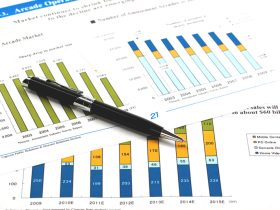Economists from Deutsche Bank, Henry Allen, and Cassidy Ainsworth-Grace, have expressed apprehensions this Monday about the potential for unanchored long-term inflation expectations reminiscent of the 1970s stagflation era. Their concerns stem from a variety of factors including geopolitical events and weather patterns that could potentially drive up commodity prices.
The geopolitical events in question involve the recent attacks by Hamas on Israel that have led to a 4% rise in oil prices. This increase in oil prices is one of the key components contributing to their concern about a possible return to a stagflation-like scenario.
Adding to these concerns is the persistent above-target inflation across all G7 countries. This trend, if it continues unabated, can potentially lead to challenges in managing long-term expectations to stay lower than actual inflation.
The expected El Niño weather pattern this winter is another factor that the economists have flagged. Historically, this weather pattern has been correlated with higher commodity prices. If this pattern holds true for the upcoming winter, it could add further pressure on inflation rates.
Allen and Ainsworth-Grace warn that if another shock results in inflation exceeding targets for a third or fourth consecutive year, managing long-term expectations could become significantly challenging. This would be similar to the unanchored inflation expectations seen during the 1970s stagflation era, where high inflation and economic stagnation coexisted.
The warning from these Deutsche Bank economists comes at a time when global economies are grappling with various challenges. The potential for a return to a stagflation-like scenario adds another layer of complexity to the task of managing economic recovery and growth.
Speaking of Deutsche Bank, it’s worth noting that the bank has been witnessing accelerating revenue growth and consistently increasing earnings per share, according to InvestingPro Tips. The bank’s revenue growth for Q2 2023 is 8.7%, and its earnings per share for the same period stand at 2.55 USD. Deutsche Bank’s market cap is currently 21168.04M USD, with a P/E ratio of 4.25. It’s also worth mentioning that the bank has been trading at a low Price / Book multiple of 0.29 and a low earnings multiple, which could make it an attractive investment option.
However, analysts predict that Deutsche Bank’s net income is expected to drop this year, and the bank suffers from weak gross profit margins. It’s also worth noting that Deutsche Bank is a prominent player in the Capital Markets industry and has been profitable over the last twelve months. For more insights like these, you can visit InvestingPro, which offers additional tips and real-time metrics about companies like Deutsche Bank.
This article was generated with the support of AI and reviewed by an editor. For more information see our T&C.
Read the full article here













Leave a Reply